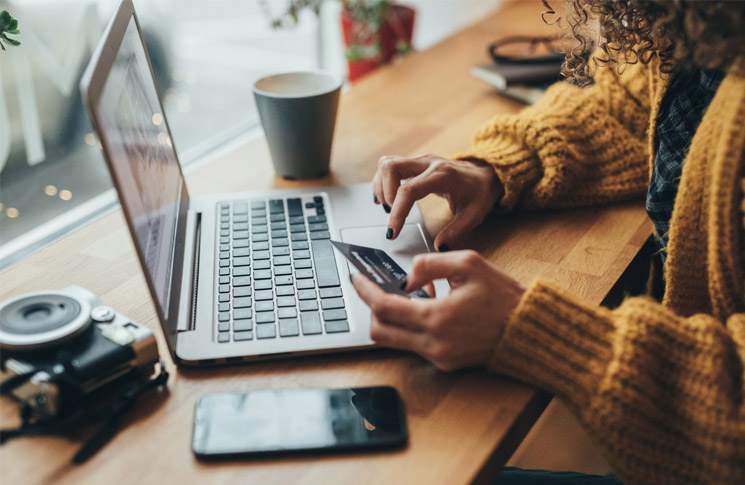
Credit
5 Reasons to Use a Credit Card
Let’s review five good reasons to actually use your credit card. The key, again, is to only spend what you can afford to pay in full each month.
Security
Credit cards generally offer more fraud protection than cash (obviously) or even debit cards. If your wallet or purse is lost or stolen, you are not responsible for any fraudulent purchases. In addition to any cash being gone, fraudulent debit card purchases will come out of your bank account initially. Now, you’ll most likely get these funds back eventually, but your overall spending, bills and automatic withdrawals may be affected. Plus, waiting on a new credit card is not as much of an inconvenience as waiting on a financial institution to replace your debit card, especially if you have automatic payments or bill pay associated with that card.
Rewards
A note of caution right up front: if you carry a balance every month, interest will wipe out any benefits you’ve earned. Credit card companies are very good at creating incentives for you to use your credit card and they’re happy to give you 3% back on groceries while charging you 18% - 28% interest on everything.
However, if you’re disciplined and use these cards like cash, you can reap the rewards which can really add up annually. If you’re family spends $500 on groceries a month, $6,000 a year, you’d earn $180 in cash back at 3%. If you have multiple cards with different rewards and cash back offers, you can earn thousands back every year. If you carry a balance, though, you’ll pay much more than that in interest.
If you can only afford a minimum payment, you can’t maximize cash back or rewards. But if you treat your plastic like cash, you can earn real money back.
Tracking
Cash is hard to track and easy to spend. Unless you keep an envelope of receipts or manually jot the expense down, it’s gone. Credit cards (and debit cards in this case) make tracking your spending a breeze. Expenses show up in real time in most cases and many online dashboards will categorize your spending for you. And if you’re disciplined enough to manage several cards for different categories (one card for miles, one for cash back on everything, one for cash back on certain categories), it’s even easier to see where your money goes monthly or annually.
Credit
A disciplined approach to using plastic will help build credit and improve your credit score. While fixed loans like auto loans, mortgages and student loans will show that you’re good with credit, properly managing revolving accounts like credit cards is essential to rounding out (and up) your score.
Lenders like to see that you can handle a mix of credit accounts, and if you keep your balances low and current, using a credit card will be an asset as you’re building your credit.
BONUS TIP:There are smart ways to use credit cards without going into debt. Spend money as you normally would, treat it like cash so that you’re not carrying a balance, and you’ll enjoy cash back, rewards, a better credit score and additional security – all without paying a penny in interest.
Large Purchase with No Interest
Look, you’re not always going to be able to pay off large purchases with cash. It’s just not in the cards for everyone (no pun intended). Using a store credit card (or online revolving credit account like PayPal) to make large purchases with no interest for six, 12, 18 or even 24 months is a great way to budget the purchase without incurring interest.
However, if you don’t pay the balance off in the allotted time, you will pay accrued interest for the entire amount from the date of purchase. It’s imperative that you don’t get stuck making only the minimum payment and that you budget an amount each month that will wipe out the balance by the due date.
Bonus tip: when you’re calculating that monthly payment, use two months less than the no-interest window for extra cushion. So, if you’ve paid $1,200 for a new laptop at 12 months with no interest, don’t budget $100 a month. Instead, calculate a monthly payment for 10 months, in this case $120, so that you have a bit of breathing room.
